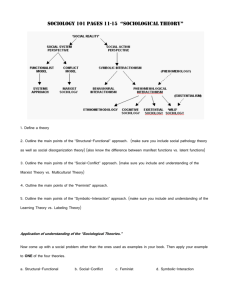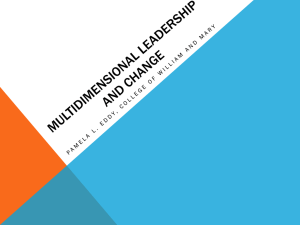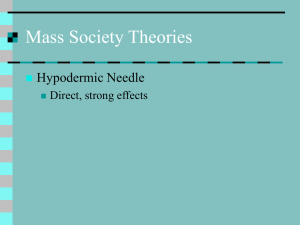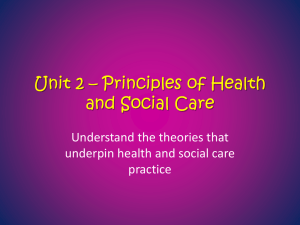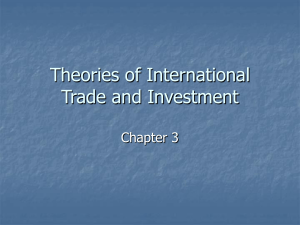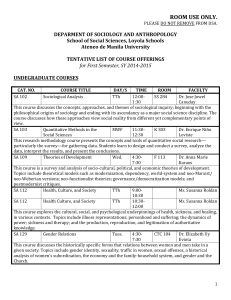Environmental Sociology Theories: An Overview
advertisement
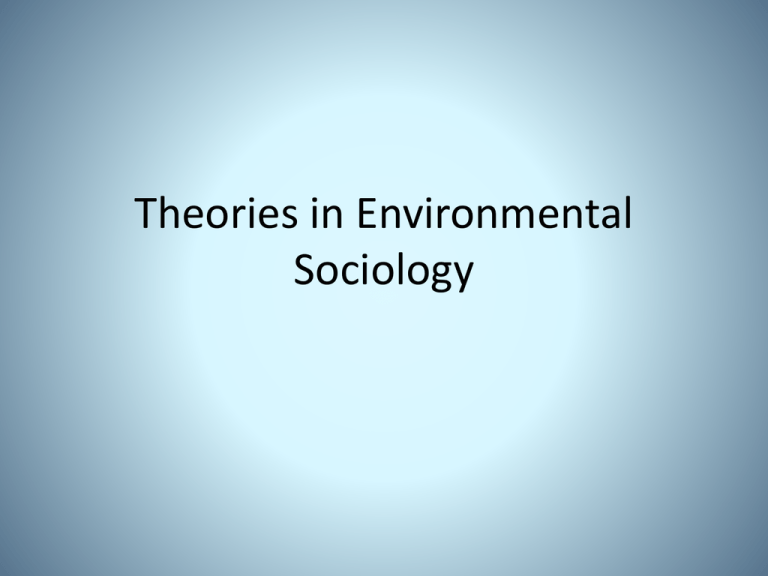
Theories in Environmental Sociology Sociological Theories • Theory is a story about how and why events in the universe occur. • Sociological theories differ from commonsensical interpretations of events in the sense that sociologists use the tools of reason or logic and empirical evidence to build theories • This is different from assumptions people make about the world based on values, and their own experiences or interpretations. Sociological Theories • This is not to claim that sociological theories lack imperfections … they are all partial. • Theorizing is about searching for cause and effect relationships. Keep in mind that correlation does not equal causation. Sociological Theories • A theory can – Provide guidance for investigation – Make people think in broader terms that immediate relationships being investigated – Help add new concepts or ideas to the general framework of the theory – Help us generate hypotheses about relationships between concepts Sociological Theories • However, having a theory can also present problems. It can – Blind us to ideas or relationships not covered by the theory – Lead us to think at the wrong level of analysis for the problem(s) being investigated – Make us exclude possible causes. The Birth of Environmental Sociology • Rachel Carson’s, Silent Spring (1962) • Murray Bookchin “social ecology” (1960s) • Garrett Hardin Tragedy of the Commons (1968) • Earth Day (1970) • UN Conference on Environment & Development (1972) • Catton & Dunlap late 70s HEP vs NEP Theories in Environmental Sociology Neo-Marxist PoliticalEconomy Theories Ecological Marxism Treadmill of Production World –System Theory Neoliberal Theories Ecological Modernization Theory Second Modernity Theories Risk Society Ecological Marxism • Murray Bookchin’s social ecology • In order to understand environmental problems we need to seek their source in the system of inequality humans have created. • Emphasizes the contradictions that exist in capitalism … contradictions that undermine the social and environmental factors that sustains the system Treadmill of Production • Allan Schnaiberg The Environment (1980) • Human economies make withdrawals of raw materials to make stuff with use or exchange value and make additions in the form of pollution or garbage. • Aim of production is grow profits for capitalists and investors. This has lead to increased technology replacing labor, increased withdrawals and additions. Treadmill of Production Neoliberal Theories • Market seen as the best mechanism to achieve important societal goals, such as development and eradication of poverty Ecological Modernization Theory • Seeks to reform or modernize rather than radically change. • Capitalism is adaptable enough to be greened, and the market is the best mechanism to generate concrete environmental solutions Second Modernity Theories: Risk Society • Influenced by the sociology of Max Weber (1864-1920) … emphasis was on the increasing rationalization of modern society and its contradictions or irrational consequences. • Beck - Risks are created by social decisions, instead of naturally occurring hazards • Loss of faith in the institutions of modernity • “Reflexivity” is the key element in uncovering solutions to the problems faced by modern societies, including environmental ones. Final Thoughts • The above theories often provide competing explanations about the relationship between human societies and the environment. • However, they also complement each other • As climate change becomes a reality, it will become necessary for environmental sociologists to improve their theoretical models, combine them and/or develop new ones.
